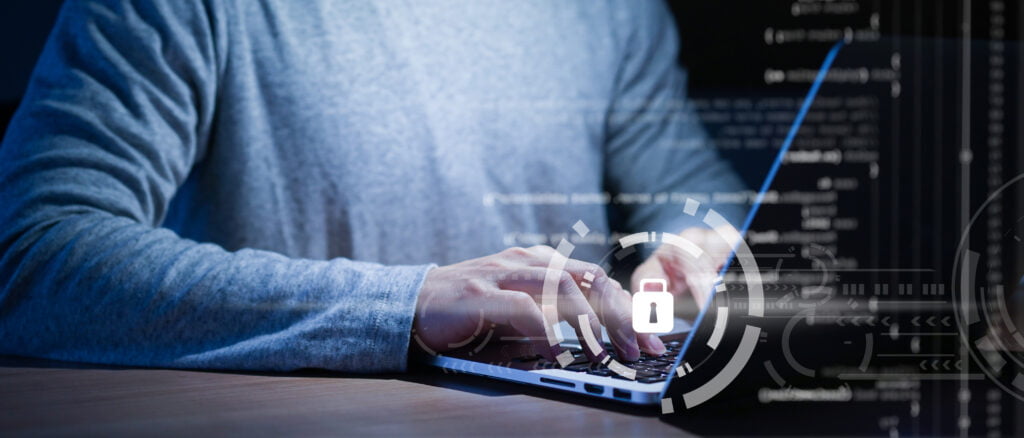The Ultimate Guide to Cybersecurity for Families: Tips and Best Practices
The information we keep about ourselves, as well as our privacy, is under serious and persistent danger. This comes as a result of the digital world we live in today. Cybercriminals are constantly on the lookout for novel entry points into our devices and networks. They have one goal – stealing private information or even money. As a consequence of this, it is absolutely necessary to be aware of the dangers. We must take preventative actions in order to shield ourselves and our family from the threat posed by cyberattacks. Here are some helpful hints for cybersecurity that will keep you safe when you’re using the internet.
Make sure your software is always up to date:
If you want to safeguard your devices from being hacked, one of the easiest things you can do is make sure your software is always up to current. The vast majority of software businesses publish updates on a regular basis. These updates typically include bug fixes and cybersecurity patches. By ensuring that your software is always up to date, you may close security loopholes. This will lower the likelihood of being targeted by hackers.
Use a Virtual Private Network (VPN):
A VPN will encrypt your internet connection and mask your IP address. This makes it more difficult for thieves to monitor your online activities and steal your personal information. What is DNS hijacking? It is not common knowledge to even know what a DNS is. However, if you want to keep your data and privacy protected, you should think about utilizing a virtual private network (VPN), especially while connecting to public Wi-Fi networks.
Make Use of Robust Passwords:
Protecting yourself from online assaults involves a number of steps, one of which is making use of robust passwords. A secure password is one that is at least 12 characters long, has a mix of upper and lower case letters, digits, and symbols, and includes a combination of all of these types of characters. Try to steer clear of using easily guessed passwords like your name or date of birth. To ensure cybersecurity of your credentials, you might want to think about utilizing a password manager.
Cybersecurity 101 – Be Wary of Phishing Attempts:
Phishing attacks are a prevalent method used by hackers to obtain your personal information. Be on the lookout for these assaults. They will frequently send you communications via email, text message, or social media. This is an attempt to trick you into opening an attachment or clicking on a link. Be wary of any messages that you have not requested, and always double-check the sender’s identity before following any links or supplying any personal information.
Install Antivirus Software:
Having antivirus software installed on your computer will help protect it against malware and other forms of dangerous software. There is a wide variety of both free and paid cybersecurity choices accessible. So, pick the one that best suits both your requirements and your financial situation. Regularly updating your antivirus software is the best way to ensure that it can identify the most recent dangers.
Activating Two-Factor Authentication is Essential for Cybersecurity:
Two-factor authentication provides an additional layer of protection for your online accounts by necessitating the use of a second form of verification in addition to your password. This can be accomplished by enabling two-factor authentication. It might be a code that is texted to your phone, or it could be an authentication app. A considerable reduction in the likelihood of a cyber-attack can result from enabling two-factor authentication.

Educate Yourself and Your Family on Cybersecurity:
It is extremely important to educate yourself and your family on the dangers of cyber assaults as well as the preventative measures you may take to remain secure when using the internet. Educate your children how to stay safe online and urge them to seek assistance if they come across anything that seems questionable to them while they’re online. Maintain an awareness of the most recent developments and trends in the field of cybersecurity and take active steps to safeguard your online identity.
Final Thoughts on Cybersecurity for Families
In conclusion, cyber-attacks are a genuine hazard in today’s digital era; nevertheless, you can protect yourself and your family from becoming victims of cybercriminals by taking preventative measures and remaining watchful. Maintaining up-to-date software, employing robust passwords, avoiding phishing scams, installing antivirus software, enabling two-factor authentication, utilizing a virtual private network (VPN), and educating oneself and one’s family on the subject of internet safety are all important steps. You may have an enjoyable and risk-free time while using the internet if you follow the advice in this article.







One Comment
Pingback: